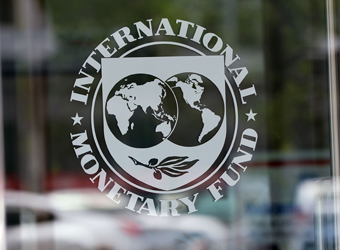The International Monetary Fund (IMF) said it expects Egypt’s inflation, which jumped to almost 30 percent in January, to ease once the impact of measures including the floating of the currency wears off.
Prices have surged since Egypt reduced fuel subsidies and removed exchange rate restrictions in November, steps that were key to secure a $12 billion IMF loan agreement. The pound has since lost about half of its value. Inflation in urban areas accelerated at an annual rate of 28 percent in January.
“We expected inflation to go up, as it did, for several months after the launch of the reform program,” Chris Jarvis, IMF mission chief for Egypt, said in an e-mailed response to questions. Inflation will slowdown “once these effects wear off, and so long as budget and monetary policies remain tight,” he said.
Finance Minister Amr el-Garhy said on Sunday he expects inflation to peak by the end of the first quarter. The IMF, in a staff report prepared before the loan accord’s approval, expects the annual rate will drop to 16.6 percent by the end of June.
The central bank raised interest rates by 300 basis points in November to 14.75 percent for the benchmark overnight deposit rate. Five out of seven economists in a Bloomberg survey expect policy makers to keep the rate unchanged when the the Monetary Policy Committee meets on Thursday.
Source: Bloomberg


